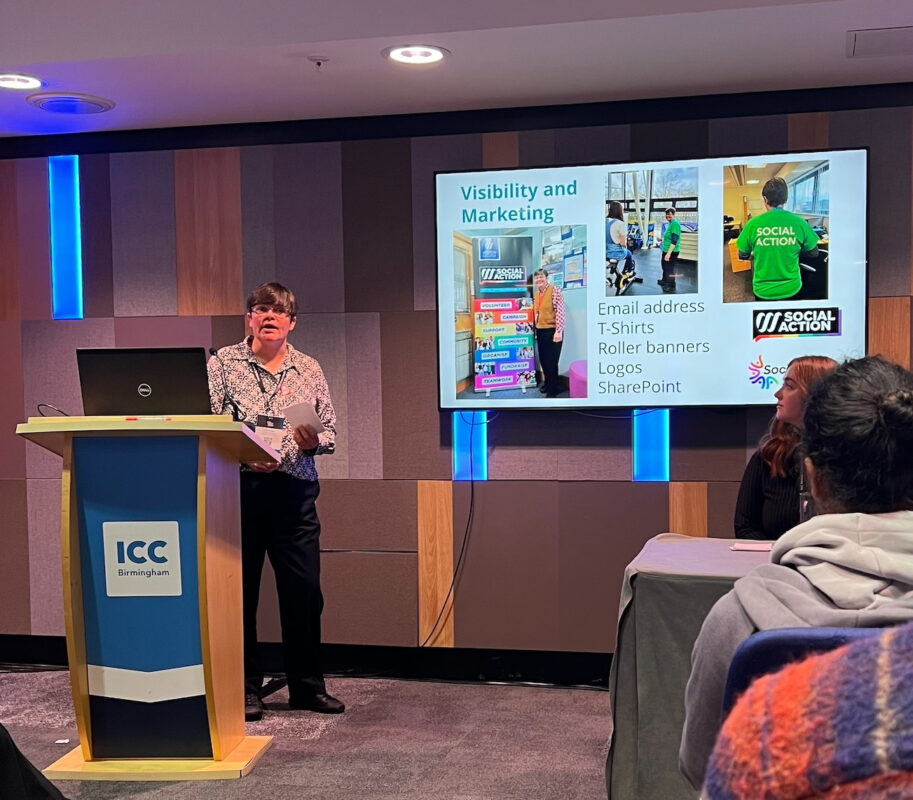Incorporating digital skills into qualifications key to future careers

A new report providing expert insight into current and future digital skills challenges has highlighted the need to ensure they are integrated into different subjects, qualifications and training pathways so they can be used in a variety of professions.
The Sector Spotlight: Digital goes on to identify two further areas of focus, including supporting employers to digitally upskill their employees and ensuring teachers are better equipped to prepare students for their careers.
Alongside skills gap and demand data, the report contains contributions by sector leaders Zoe Amar, Director of Zoe Amar Digital, and James Lane, Sector Manager for Digital, Creative and Design at NCFE, as well as insights from Gary Rogers, Associate Director of Tech & Digital at Northern Recruitment Group.
The Spotlight forms part of a new series by the educational charity and leader in technical and vocational learning NCFE. To mark the organisation’s 175th anniversary, it is releasing several reports looking at critical sectors, including FE, social care, early years, and digital, as well as publishing a paper calling for action and change across the skills landscape.
Philip Le Feuvre, Chief Operating Officer at NCFE, said:
“To mark NCFE’s 175th anniversary, we have invited collaborators from across the sector to develop a series of spotlight reports focused on four key sectors that are essential to the future of the UK’s prosperity and productivity; education and early years, social care, digital, and the Further Education (FE) sector itself.
“By analysing workforce data and bringing together leading voices from across these sectors, as well as hearing from those working on the frontline of their respective fields, we can begin to identify current and upcoming challenges, as well as potential opportunities to address the skills gaps that have emerged.
“What’s clear from the insights in these reports is that sector skills gaps will continue or worsen if bold and transformative action is not taken.”
Utilising Office for National Statistics labour demand volumes, the Digital Sector Spotlight report shows that, in 2022, there were over 450,000 more job postings within the digital sector as a whole than in 2017. This includes the creation of brand-new jobs, seen as emerging skills, as well as people leaving roles and creating a vacancy. Both result in a skills gap, with the digital sector’s increasing by more than 22% over the last five years.
Writing in the report, Zoe Amar said:
“This skills gap has not arisen out of the blue, although the digital acceleration we saw during the pandemic will have exacerbated it. It has its roots in education, going right back to when children first enter the classroom.
“Research done in collaboration with Nominet in 2022 found that teachers are struggling with their own skills gaps. 61% of UK primary teachers tasked with teaching computing do not have a background in the subject, while three in five said that a lack of resources was a major barrier.”
James Lane adds: “Having the ability to write code is no longer something that exclusively sits in the proverbial lap of a developer – we are all coders (albeit to varying degrees and applications).
“Knowing how to script something could more progressively be seen as a tool of automation and can be applied to varying careers and pathways. Changing this focus will help to ensure that there is a pipeline of qualified digital professionals coming into the workforce.
“The skills gap in the digital sector is a serious problem, but it is one that can be solved. By investing in training, education, and policy, we can ensure that we have the digital workforce of the future.”
NCFE identifies three areas of focus drawn from the data and expert views in the report:
- Upskill teachers – although the outcomes will be more long term, we need measures that will get ahead of the future skills gaps in the sector. Ensuring teachers in primary and secondary schools are properly and appropriately trained will ensure learners receive the best and most up-to-date information to set them up for a career in digital.
- Support employers – employers play a key role in tackling more immediate skills gaps. They must be encouraged and supported to help their employees upskill digitally. This investment not only brings new ideas and innovations but helps with retention as well. Peer-to-peer employer support should also be encouraged, as well as the creation of new government initiatives to help employers shoulder the financial costs – particularly in the current economic climate.
- Integrate digital into other subjects – digital skills are needed in almost every sector. We must do more to incorporate digital skills into other qualifications and training pathways, such as apprenticeships. This will provide a base-level of transferable skills that can then be used in a variety of careers – particularly as more and more sectors go increasingly digital.
To read the full FE Sector Spotlight and subsequent reports as they’re published, visit here.











Responses